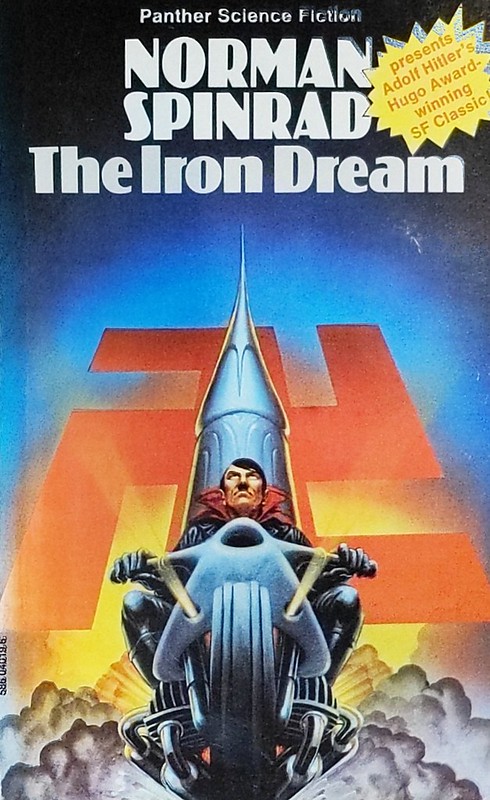 Wiki has a good article outlining the book and plot, so I don't need to bother; also Goodreads.
Wiki has a good article outlining the book and plot, so I don't need to bother; also Goodreads.The ostensible reason for the book is to show how Nazi-like many crude swords-n-sorcery type books are, though I can't immeadiately think of any myself. And anyway, I think the real reason was just a sense of fun.
The story itself is reasonably well told; perhaps if you like deathless prose you'll be somewhat disappointed, but it sure beats pages and pages of Marcel mooning over Gilberte. The blood, gore and excrement gets rather heavy towards the end, as do the walls of steel and so on, but that's part of the point. As are the heavy homoerotic overtones, peaking at Stag Stopa kneeling to kiss Our Hero's mighty truncheon; and the SS heroes fighting in tight black leather uniforms slick with body fluids.
Note that in a cunning and subtle reversal, the hero of the book is a blond blue-eyed genetically pure Aryan giant, who takes over the party from and with the cooperation of a Hitler-figure; so the cover image here hasn't quite caught up. But it wouldn't resonate with us if it had.
A thing I missed, just to show you how alert I am: the Doms are the Jews. That they also run Zind, which is the Soviet Union, which is atheist, and so they can't be Jews, is an irrelevant detail.
This is the second time I've read this, so this time I was looking for a couple of things. For example, the first Dom is killed when he stirs up a mob against it: very like witch-hunting. Except, the book is careful to have the Dom curse the evil human scum before it dies, so you know it really was one, not just some unfortunate. So, within their own terms and in the reality of the book Our Hero and his racial will are justified (well mostly; arguably some of the mixed Parrotfaces and so on are sentient and don't deserve to die). Where it fails is in transfer to our world, where the Commies are unquestionably human.
Oh yeah one other thing: the politics. Our hero runs for office, for the 9-member council of state or whatever it is called. But he's the only one in his party who does run, so they can't "win". And this makes sense: they are really only running for the PR, and they don't really want to get bogged down in electoral politics anyway. In the same way that Atlas Shrugged does have some things to say, there's a valid point there. One that the book, in it's relentless forward rush, doesn't stop to explore.
No comments:
Post a Comment